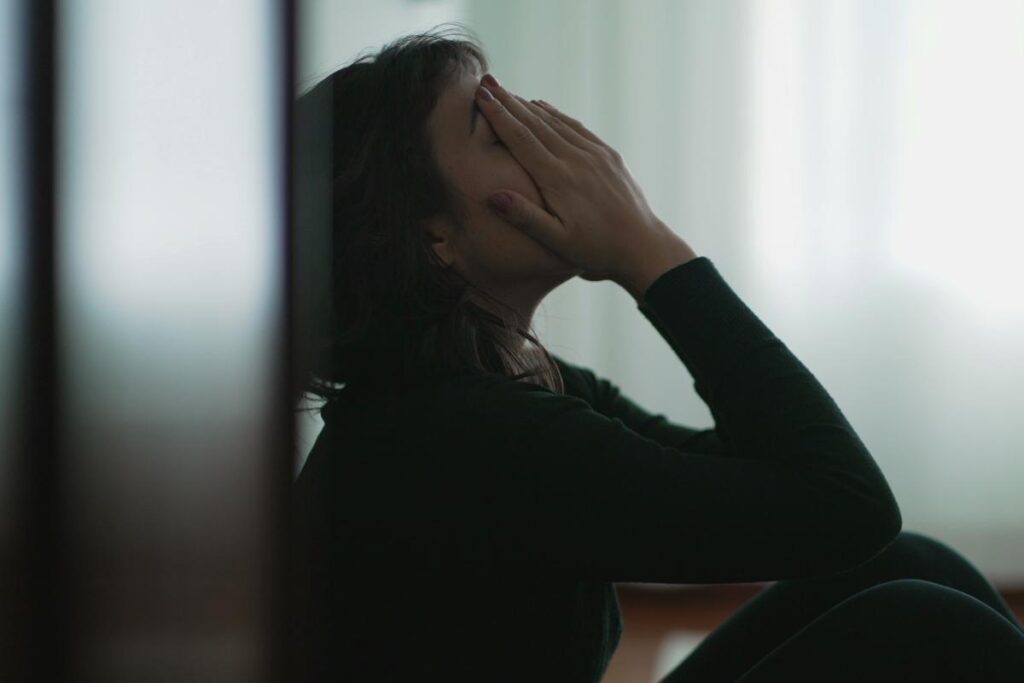Seasonal depression, also known as seasonal affective disorder (SAD), is a type of depression experienced by individuals with a change in season. The condition is more common during winter months when the days are shorter, and sunlight is scarce. People who suffer from SAD may experience a wide range of symptoms, from feeling low to a loss of interest in activities. Let’s look at what seasonal depression is, how it happens, and the signs you should look out for if you suspect you have it. To learn more about a depression treatment program in Kentucky, call us today at 855.590.9944.
What Is Seasonal Depression and Why Does It Happen?
Seasonal depression, also known as seasonal affective disorder (SAD), is a condition where individuals experience mild to severe signs and symptoms of depression that align with specific seasons, most commonly during the winter months. One prevailing theory behind SAD is the lack of sunlight exposure, which can disrupt sleep patterns and alter hormone levels, contributing to the onset of depressive symptoms.
Additionally, it is believed that the neurotransmitter serotonin, known for its role in regulating mood, may also be involved in SAD. When serotonin levels drop, the part of the brain responsible for mood regulation can become activated, leading to feelings of depression. Understanding these factors and their impact on seasonal depression can provide valuable insights into effective management and treatment options for those affected.
Signs of Depression To Look Out For
The symptoms of seasonal depression vary for different people. However, the most common ones include:
- Fatigue
- Inability to concentrate
- Social withdrawal
- Feelings of worthlessness
- Anxiety
Other symptoms may include difficulty sleeping or oversleeping, sudden changes in appetite and weight gain, and loss of interest in activities you once enjoyed. If you experience any of these symptoms, it is essential to seek medical attention.
Long-Term Effects of SAD
If left untreated, seasonal depression can cause significant long-term effects on your mental and physical health. Prolonged exposure to depression can lead to severe mental health disorders such as anxiety and depression.
It can also affect your immune system, making you susceptible to infections and illnesses. Additionally, SAD can lead to feelings of isolation, strained relationships, and difficulties at work or school.
What Is Mental Health Treatment?
Mental health treatment encompasses a wide range of interventions designed to help individuals overcome mental and emotional disorders or distress. It involves techniques such as therapy, counseling, psychopharmacology, and other medical interventions. Mental health treatment aims to help individuals live a healthier, happier life, and reduce the risk of developing more severe mental illnesses.
Therapies Used in Mental Health Treatment
Cognitive-Behavioral Therapy
CBT helps you identify the thought patterns that lead to negative feelings and teaches you how to replace them with more positive ones.
Mindfulness-Based Cognitive Therapy
MBCT combines cognitive therapy with mindfulness practices to help individuals manage negative thoughts and emotions.
Interpersonal Therapy
IPT emphasizes the importance of social relationships and helps individuals identify and resolve relationship problems that contribute to depression.
Psychodynamic Therapy
This therapy focuses on subconscious emotional conflicts and their effect on behavior and mood, helping individuals identify and resolve past traumas.
Art Therapy
Art therapy uses creative expression to help individuals improve their emotional, physical, mental, and spiritual well-being.
Get Help Today From Roaring Brook Recovery Center
If you or a loved one are experiencing seasonal depression, it is essential to seek help. Roaring Brook Recovery Center offers exceptional care to individuals struggling with depression and other mental health conditions. Our team of mental health professionals will help you develop an individualized treatment plan to meet your specific needs and reduce the risk of relapse. With the right treatment, you can overcome seasonal depression and lead a happy, fulfilling life. Call us today at 855.590.9944 or use the Roaring Brook online contact form to get started on your recovery.


